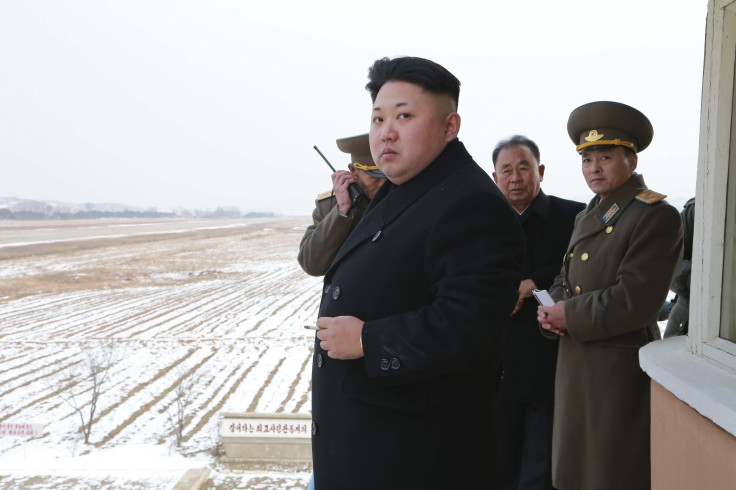Did Kim Jong-Un Order The Sony Hack Over 'The Interview' Movie?

The FBI has determined the high-profile Sony Pictures Entertainment cyberattack that prompted the indefinite postponement of the film “The Interview” was the work of the North Korean government. Although a North Korean entity may be behind the hack, experts say it isn’t likely the directive to carry it out came from Kim Jong Un himself.
The hacks reportedly targeted the entertainment company because the controversial comedy depicts the killing of North Korea’s dictator. While Kim was the butt of the Hollywood political satire that provoked threats of attacks at U.S. movie theaters reminiscent of those conducted Sept. 11, 2001, it appears far-fetched he had a hand in initiating the hacking or the subsequent threats.
“When you criticize Jesus, it is not Jesus who is likely to talk back to you,” said Seong-Hyon Lee, an expert on North Korea at the Center for Asia-Pacific Future Studies at Kyushu University in Japan. “Rather, it is followers of Jesus.”
But this isn’t to say that Kim doesn’t have control over the branches of his government that may have been responsible for the attack. In fact, it may mean quite the opposite. “Based on the robustness of protest by the followers, you could also infer the power grip of the leader,” Lee said.
The Jesus comparison is not too far from reality in North Korea. In a country where religion is banned, Kim Jong Un, his father Kim Jong Il and his grandfather Kim Il Sung, are revered as gods.
Flexing its cybermight by hacking into the Sony Pictures Entertainment computer network is not necessarily a priority for the Pyongyang regime, but it does show that the closed-off Communist nation is capable of hitting hard in an area where wars may soon be fought: cyberspace.
“North Korea also knows that cyberweapons are the weapons of the future, comparable to the status nuclear weapons enjoy today,” Lee said. “There are different views and debates about North Korea’s hacking ability. If North Korea’s nuclear capability can be any hint, Pyongyang’s hacking ability is also likely to prove that the outside world has underestimated it.”
The hack is not entirely surprising. After the studio began rolling out trailers for the film in the summer, North Korean authorities expressed extreme criticism of the movie. “The act of making and screening such a movie that portrays an attack on our top leadership ... is a most wanton act of terror and act of war, and is absolutely intolerable,” NK News reported at the time, citing a statement made by an unnamed representative of the country’s foreign ministry that was published by the state-run Korean Central News Agency. “If the U.S. government condones the screening of the film, they will have their consequences.” The rep also called the makers of the film “gangster-like scoundrels.”
North Korea’s response to the movie has resulted in a possible multimillion-dollar loss for the studio’s parent Sony Corp., in addition to a firestorm of criticism by people saying the company should not have bowed to North Korea.
© Copyright IBTimes 2024. All rights reserved.












